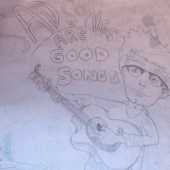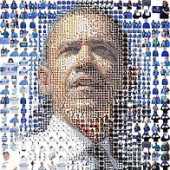The Inner Game of ProBall
Jeff, I have a question. I am going to be competing in a large (national) music competition next week, and I want to prepare as well as possible mentally. Is it a good thing to think about winning ( you play your music, there is a cut of contestants… this happens 3 times), or is that lacking focus? It can't be a good idea to visualize failure can it? If you have any tips on mental prepare for this type of thing, I would really appreciate what you have to say…Hi amigo - As Bruce Lee would say, "it's not about winning. It's about perfection." Consciousness of others — even subconscious greed for defeating others — is a distraction. What is worse, your awareness of the excellent performers that are there will breed insecurity. "Wow, look at these prodigies here! And they have twenty people with them! And look at those instruments! … how can I possibly beat every crack studio pro in the country …".) On the conscious and on the subconscious level, your goal must be a performance that you are truly happy with. You must plan on coming home and discussing whether you were pleased with your execution, not whether you "lost." And make no mistake, if you get too amped up about the competition, that is what you will be thinking about, whether you will lose… The Japanese call this mu shin - "no mind," a relaxed concentration on your intentionality without emotional attachment to whether you succeed or fail. Without "greed for victory." Lee's attention here is on deflecting the incoming energy in an absolutely perfect manner. This gives him (a) no fear of what would happen if he failed, and (b) margin for error (if he misses perfection, he still gets adequate). . === GOLF MY WAY Dept. === Jack Nicklaus gave perhaps the single most important piece of advice I've read concerning state of mind in live-action sports … He watched an amateur standing over the tee, addressing the ball, concentrating hard, and Nicklaus knew he was going through a mental checklist. During the swing, Nicklaus said, you can only think of one, or at most two, swing keys. Try to think of three or more and you are done. As you groove one or two in, they become automatic, and then you switch keys, always staying on a key that helps you grow… this keeps you "forwardgoing" in your state of mind. In a Ping-Pong rally, you can only focus on one or two keys … "turn your hips" and possibly "hit the ball deep" or whatever. You can change keys during time outs if you wish…. if you let your attention wander even for a moment to your opponent's fine play, he will destroy you. It's like driving a race car, playing against better players …. focus on the path ahead and you're okay … let your eyes wander to the dangers around you, even for a moment, and you are a flaming fireball. As it regards your intensity for executing your keys, you cannot be too enthusiastic. Throw your whole being into the execution of these keys. To the right, Lee isn't angry; he is intensely throwing himself into his desire to execute (his methods, not his enemy…) In aikido randori (live sparring), you only have time to focus on one or two things consciously. At the moment mine are "see the energy early and reach in to get it" and "broken rhythm" (see Tao of Jeet Kune Do). When one of these is being accomplished automatically, I might switch to "keep weight underside" or "relax." Playing (bass) guitar live, it is (was) absolutely a must for me to block the audience out of my consciousness entirely — the key for me was to try to anticipate the emphasis notes, and to set the grace notes up to flow toward them with feeling, to "raise and lower the hammer" so to speak. One doesn't execute musical notes; one speaks with one's instrument (not that my garage band ever accomplished this!) … what are we trying to say here? There are two suggested keys … If you find your own enjoyable key and stay with it during your performance, your state-of-mind will be forwardgoing and resilient. It won't make you the best player in the world, but it will make you a good player by your own standards that day. ================== Timothy Gallwey's Inner Game of Tennis is the best book ever written on the subject (that I know of), well worth your $14.95 before the competition… Of course your subconscious mind is aware of the truth that you are in a competition, and the truth that you want to win. Nevertheless, the attempt to focus on execution, rather than outcome, is necessary. Cheers, Jeff
Dan Deacon: 10th Level Mason
Dan Deacon looks like a nerd, but one that has very specific and intriguing interests. He’s disheveled, but somehow attractive – he has a way about him. His music sounds like electro-pop for twenty-somethings that have only disdain for the radio, but still embrace brilliant song craft. And song craft is something that Deacon should have. He’s completed a Master’s degree in electro-acoustic composition, but has chosen to tour the nation’s dingy D.I.Y. venues and clubs in search of the perfect beat.
His last disc Spiderman of the Rings served to introduce him to a vastly expanded audience, while his touring attracted a great deal of attention from indie and mainstream press outlets. But what now?
On December 11th, at a Masonic Temple no less, Deacon will unleash his 15 piece ensemble, partially made up of members from So Percussion. I had the opportunity to attend a performance of the percussion group a few years ago when the performed work by Steven Reich – it was nothing short of entrancing. Whether the music composed by Deacon fits in with this avant-garde composer’s aesthetics remains to be seen, but So Percussion will have an opportunity to perform a set of their own prior to performing with Deacon.
What Deacon will be giving the audience is a sneak peak at his forthcoming album, Bromst, which will be released during late March on Car Park Records. His slew of touring won’t stop with this performance. Deacon and company commence a short East coast tour before – presumably – touring after the new album is released. The funny thing is that a lot of the smaller venues Deacon is accustomed to playing on the road may not be able to host such a large band, forcing the tour to find larger, more commercial spaces. We’ll see.
New Psych: Crystal Stilts
The echo, reverb and ambivalence doesn’t drip, but flows off of everything that the Crystal Stilts do. Coming off of a few releases on the venerable Woodsist, the band finds itself working with Oakland’s Slumberland Records to bring out a full length disc entitled Alight of Night.
The Velvet Underground references from press releases aren’t invalid, but perhaps overstated a bit. Is there really an ‘underground’ band now that doesn’t draw from that source? Probably not. But Crystal Stilts do deliver on distant vocals, atmospheric and simplistic rock music. Will it change the world? No, but you can feel cool and detached while listening.
I am a bit confused by the song “Crystal Stilts.” Surely there are bands that have their moniker taken from other song titles, but doesn’t a song with the same name as your band hint at some laziness? Perhaps the band’s ‘I-don’t-care’ attitude is manifested here. But, I’d really like to be able to explain what’s going on lyrically during the track - unfortunately Brad Hargett has mastered his sing/speak mumble and made the music even less penetrable by obscuring his intent. That’s just style though – one that’s been copped before, but put to good use here.
If the simple description of stripped down, reverb heavy rock isn’t enough to entice listeners, just consider that Crystal Stilts have opened for not just the Vaselines, but also the Clean. There probably are not too many others who can make such a statement. Judge for yourself, though - take a listen.
Tour Dates: Dec. 10 Montreal, QC La Sala Rossa (w/ Love is All) Dec. 11 Toronto, ON Horseshoe Tavern (w/ Love is All) Dec. 12 Detroit, MI Magic Stick (w/ Love is All) Dec. 14 Chicago, IL Empty Bottle (w/ Love is All) Dec. 17 New York, NY Le Poisson Rouge (w/ Vetiver)Satin Flats and Heels
why does my cat cry so much?
Has anyone else received the paper I mention?
Dear Diabetic Patient, please help our survey!
Book of Mormon Evidence
Looking for gospel song
Golden Compass - Amber Spyglass
The Amber Spyglass is, without a doubt, the least opaque of purpose in the trilogy. As is well known, Pullman was comfortable with the stratagem of turning over his hole cards after his audience was firmly snagged on the craftsmanly literary-line of his adventure. Whether this is considered devious, or simply wise, is likely in the eye of the fan or critic; in any case, it wasn’t a stratagem that Lewis — despite the professional alienation that he suffered as an out-of-the-closet Christian in the English academic world — felt necessary in Narnia.
The Formalist should be able to draw the meaning without too much effort, with help from plot, character, setting, and word use. In the third chapter of the trilogy, the war is waged head-on. Some of the heroes search for the Authority’s cloud; some of the heroes try to kill Pullman’s malevolent Archangel; and some of the heroes will set the dead free from their imprisoning world the Authority has put them in, coming out into the world to become dust and stars and grass. Another example of Pullman’s atheistic touch.
The book sets up Mrs. Coulter and Asriel as moral heroes. In The Amber Spyglass, their last, sacrificial, move is to kill Metatron (originally the historical Enoch from the Bible) by pulling him down in a no-space pit together. In The Amber Spyglass, the Authority is evidently looked as some kind of mistake; someone set up the wrong thing at the wrong time and doesn’t really know what’s going on.
Metatron, given all power from the Authority, is the key target of the anti-God heroes; we read it as a deep emotional triumph when Mrs. Coulter and Asriel kill the God-Authority. Also, the setting of an Angel (more usually referred to as the Archangel Gabriel) as a fiend to be killed at any cost, is a typical (but more blatant) plot event for The Dark Materials series.
The grim fate of the Authority emerges in the final book. Lyra see the Authority; He is a bedridden, sick old man who knows nothing of anything (!).
God dies, apparently from simply being too old and fragile to come to Earth. His death is the logical culmination of the plot mechanics in the last two and a half books. Once God is dead, everyone in the books boasts of their glorious freedom and how they must know get their own work done; sacrifices were made to start building the Republic of Heaven, which is the human’s version of heaven in the books, and what it stressed as right.
At the very least, it could be said, from a Formalist’s point of view, from the word use, that Pullman is not just trying to brainwash children into his way of thinking; he is genuinely trying to explore the question of what things would be like without a God. At first everything is beautiful yet hurtful, aching in every way. However, as time passes on, everyone agrees that their mission must continue, that they are doing the right thing by building their own spiritual kingdom.
In The Amber Spyglass, we attain enlightment: “This was the very thing she’d told Will about when he’d asked if she missed God… When she’d been a Christian, she had felt connected, too; but when she left the Church, she felt loose and free and light, in an universe without purpose.”
Dust, and the childrens’ own humanity and love for life, brought them their mission to build a new realm brought purpose back to the world.
“Had she thought there was no meaning in life, no purposed when God had gone? Yes, she had thought that. ‘Well there is now,“ she said a loud, and again louder, ‘There is now!‘”
So Pullman posits simply that God was the wrong answer; that humanity’s own passions were the only forces that ever really meant anything; and that those self-oriented passions would be the foundations for a new heaven; a right heaven.
“He meant that the Kingdom was over, the Kingdom of Heaven, it was all finished. We shouldn’t live as if it all mattered more than this life in this world, because where we are is always the most important place.”
And to quote the very last two lines of His Dark Materials, “’And then what?’ said her daemon sleepily. ‘Build what?’ ‘The Republic of Heaven,’ said Lyra.” (518)
Americans of course protested the film, and Americans argued for the film. His Dark Materials incites appreciation in Purists and atheists, and even in some church-goers, for offering what they imagine to be a new perspective.
It repels Christians and people of faith all over the world, causing parents to want to protect their children against such theories, even as Narnia repels Pullman.
The imprint of this work of literature will be on people’s lives worldwide, creating such a controversy because of its meaning. It perhaps is not the Formalist’s duty to declare the meaning good or evil, but it is within yours and mine.


